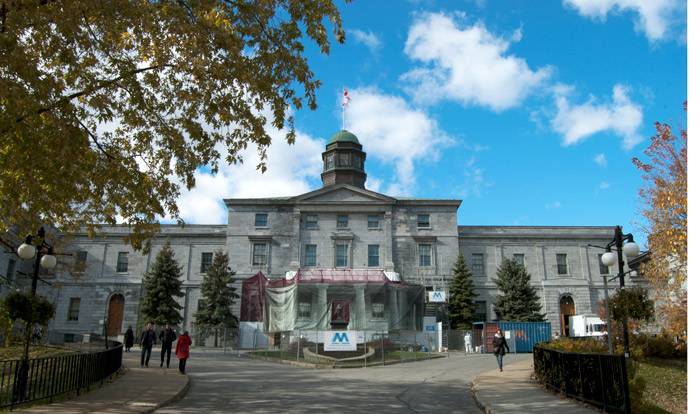Six years ago, I sat in a computer lab at my rural high school in southwestern Ontario for a mandatory course that the majority of my grade considered mind-numbingly dull: Civics and Careers. This one-credit program instructed 10th graders on ethics, resume-writing, and surviving the post-2008 labour market. Our assignment that day was to research a prospective field of study that would shape a larger project—a 10-year plan describing our dream job, lifestyle, and income in detail. Our respective plans, we were told, would be an important resource for us to refer to during course selections, as our eligibility for certain post-secondary programs depended on selecting the appropriate high school courses in our junior and senior years.
Six years later, I’m past the halfway mark of the 10-year plan I’ve long forgotten, and I fail to recall the dream job and lifestyle I once envisioned. I have, however, over the last year, crafted a number of satisfying responses to the two questions that I’m most frequently asked regarding my impending graduation: “So, what are you going to do with that degree? What’s your plan?”
These questions often come from a place of curiosity—and perhaps even a place of concern. Whatever the intention, both reflect the socially-acceptable and mechanical process undergraduates are expected to follow: Work hard, earn a degree, and secure a successful—synonymous with well-paying—job in a relevant field that, with a university education, should be easy to find.
While this may not sound like an unreasonable expectation, it fails to account for the fact that the post-secondary student experience has changed radically over the last 50 years. Undergraduates today are living in a different world than that of their parents or their grandparents. Long-gone are the days when an undergraduate degree was a ticket to a dream job, a glorious pay cheque, and a prestigious reputation among one’s colleagues. Nowadays, post-grad options for arts students seem to fall anywhere along the spectrum from attending law school to settling for barista work.
This may be due to the ever-growing gap that separates the expectations of soon-to-be grads from the realities of the labour market. A 2013 report from the CIBC World Market stressed the drawbacks of pursuing arts and humanities degrees, citing a much lower return on investment for soft degrees in comparison to specialized ones. These low-return fields—which in 2013 accounted for 45 per cent of all university graduates—make up the largest share of university students. Students in humanities and arts degrees are expected to earn around $30,000 per year—less than half of the median income.
But, it’s not just arts students who should be worried. Even the engineers aren’t guaranteed a full return on the value of their degree: A 2015 report from the Ontario Society of Professional Engineers (OSPE) showed that 33 per cent of engineering graduates in Ontario are underemployed, meaning that they’re working jobs that don’t require an engineering degree. The OSPE suggested that universities may be at fault. Post-secondary institutions are under-preparing their graduates and neglecting the job-related skills so critical to securing employment in today’s labour market, such as the hands-on experience gained through internships or experiential learning initiatives.
Regardless of the type of degree, these are the realities facing most, if not all, undergraduates: Dismal job prospects, preceded by inadequate preparation by the institution. Unfortunately, there’s still a certain level of perfection expected among university students—not only throughout the course of their degrees, in the form of extracurricular commitments, internships, and a high GPA, but in their post-graduate plans as well. If a student’s success isn’t defined by their acceptance to graduate school, it’s defined by their ability to secure employment opportunities, the primary value of which often lies in the associated dollar sign. Any deviation from the idealized undergraduate path—whether it means taking a year off, working a lower-end job, or enrolling in a college program—is viewed as a failure.
Ultimately, the job opportunities associated with the degrees we’ve worked tirelessly to earn are no longer guaranteed. The changing labour market doesn’t value bachelor’s degrees to the extent that it used to. This change has been accompanied by a spike in competition between students, and the failure of universities to prepare us for the new jobs landscape after graduation. University students need to think creatively about new ways to use their degrees, and shouldn’t be bound by a model that was built for the student experience of the 1960s.









